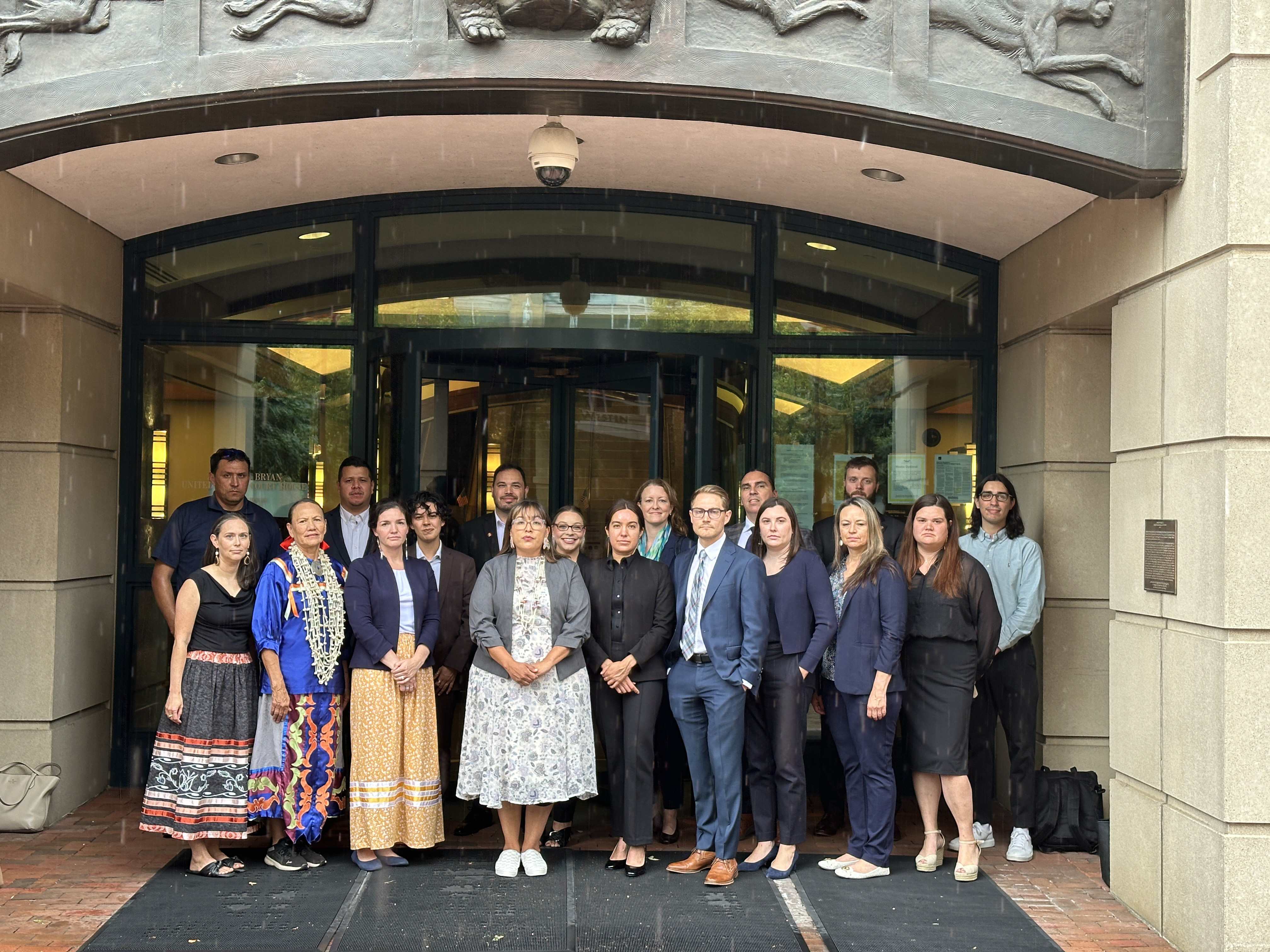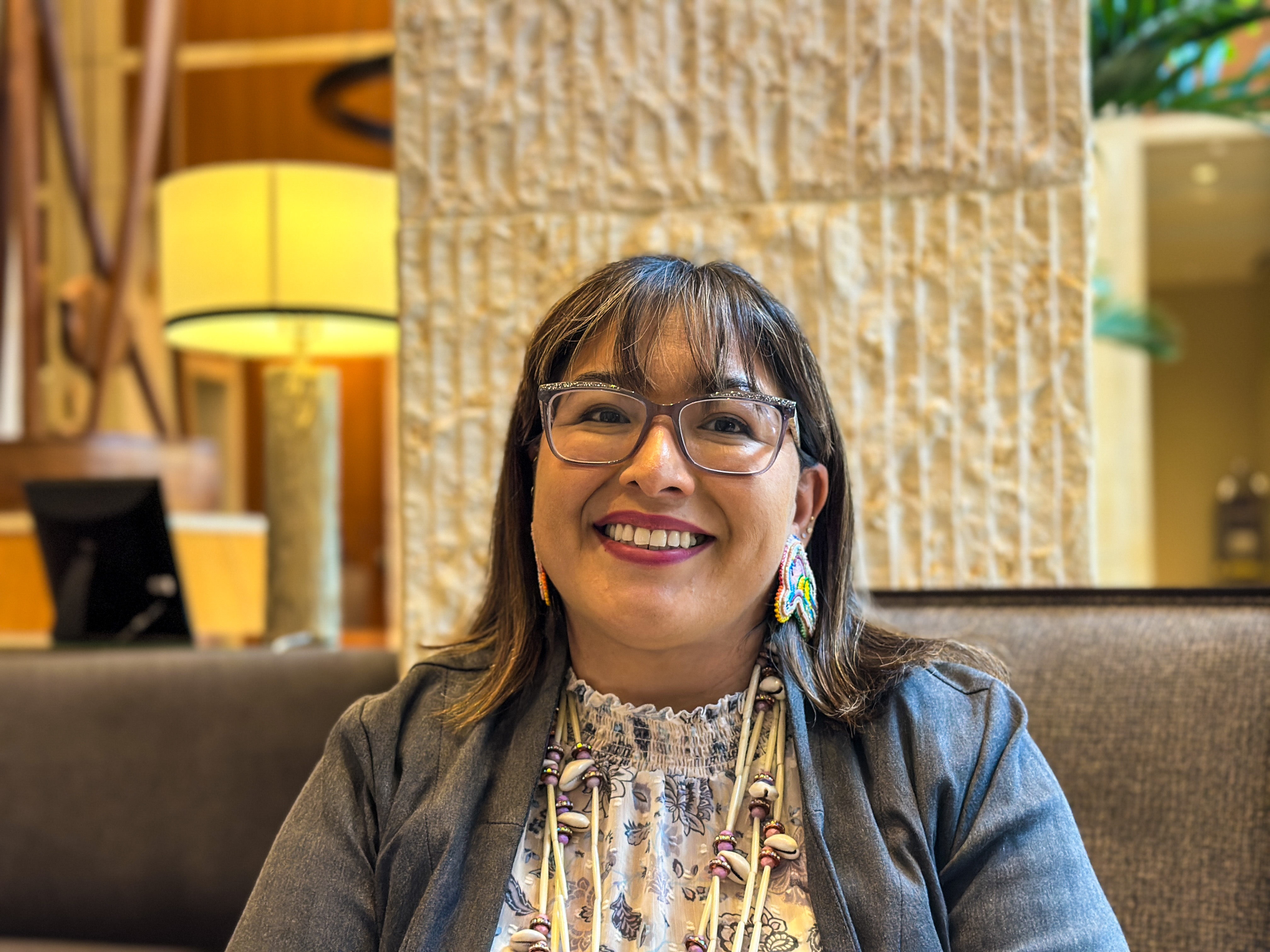Indianz.Com > News > ‘Bring our kids home’: Winnebago Tribe in court over children buried at Indian boarding school

‘Bring our kids home’: Winnebago Tribe in court over children buried at Indian boarding school
Tuesday, July 16, 2024
Indianz.Com
ALEXANDRIA, Virginia —
A federal judge here is weighing a decision that the Winnebago Tribe hopes will set a strong precedent at one of the most infamous Indian boarding schools in the nation.
Two Winnebago children — Samuel Gilbert and Edward Hensley — are known to have died while attending the Carlisle Indian Industrial School. But the Department of the Army, the military agency that controls the cemetery where the boys and hundreds of other tribal youth are buried, is refusing to repatriate the remains under a key federal law.
According to the federal government, the U.S. Army does not have to comply with the Native American Graves Protection and Repatriation Act, the law known as NAGPRA. So a delegation of Winnebago leaders and citizens packed a federal courthouse in Virginia last week to stand up for the children whose voices have been denied for more than a century.
“Those children at Carlisle never had a choice,” Chairwoman Victoria Kitcheyan said in an interview on Friday after the hearing in Alexandria, a colonial-era city whose own dark history is being re-examined.
“Now that tribes recognize that, and have the fitness to bring our kids home, it’s the most important
thing that they be laid to rest with the protocols that each unique tribe holds as sacred,” Kitcheyan told Indianz.Com.
The Native American Rights Fund (NARF) argued on behalf of the tribe at the hearing, which lasted about 30 minutes. NARF staff attorney Beth Wright pointed out that the U.S. Army moved the remains of Samuel and Edward from their original graves to the current cemetery in 1927 — without ever notifying their families or their community. “The purpose of NAGPRA is to empower Indian tribes,” Wright told the court,” and that is what Winnebago is here to do.” In a sign of the precedent that could be set with the case, the United South and Eastern Tribes Sovereignty Protection Fund, which represents 33 tribes from Maine to Florida, and the Catawba Nation submitted a friend of the court brief in support of NAGPRA applying to the Carlisle cemetery. A Catawba child died at Carlisle but the Army has been unable to find his remains and even removed his headstone from the gravesite where the military thought he had been buried, Chief Brian Harris stated in a sworn declaration. “NAGPRA’s provisions clearly apply to the remains at the Carlisle cemetery which are only there because the federal government collected our children, subjected them to treatment that killed them, and now continues to hold their remains in a graveyard controlled by a federal agency and located on federal land,” the tribal brief states. Carlisle was founded by the U.S. government in 1879. By the time it closed in 1918, more than 10,000 children from over 140 tribes were sent there as part of a federal policy aimed at disconnecting them from their nations and communities. The Indian boarding school’s infamous founder and longtime superintendent was Richard Henry Pratt, a military general. In a speech just three years before Samuel and Edward were taken from their tribal community at Winnebago, he explained why Indian children were being sent to Carlisle The goal was simple, Pratt said in 1892: “Kill the Indian in him, and save the man.”On June 7, in the U.S. District Court of Virginia, the Winnebago Tribe of NE filed its response to the Army’s motion to dismiss their demand to bring home the remains of two boys who died at the Carlisle Boarding School. Read more: https://t.co/WFT70wUM8j #BoardingSchoolHealing
— Native American Rights Fund (@NDNrights) July 2, 2024

Related Stories
Search
Filed Under
Tags
More Headlines
AUDIO: American Indian and Alaska Native Public Witness Hearing Day 3
Native America Calling: The Trump administration, endangered fish and a new book
AUDIO: American Indian and Alaska Native Public Witness Hearing Day 2, Afternoon Session
AUDIO: American Indian and Alaska Native Public Witness Hearing Day 2, Morning Session
Native America Calling: The game is changing for student athletes
AUDIO: Federal Indian Trust Asset Management: Progress Made But Improvement Needed
AUDIO: American Indian and Alaska Native Public Witness Hearing Day 1, Afternoon Session
AUDIO: American Indian and Alaska Native Public Witness Hearing Day 1, Morning Session
Native America Calling: Native people left out of progress on overdose deaths
Native America Calling: Trump job cuts hit Native education and sacred sites
House Subcommittee on Indian and Insular Affairs meets for oversight hearing
NAFOA: Things You Need to Know this Week (February 24, 2025)
VIDEO: American Indian and Alaska Native Public Witness Hearing Day 3
VIDEO: American Indian and Alaska Native Public Witness Hearing Day 2, Afternoon Session
VIDEO: American Indian and Alaska Native Public Witness Hearing Day 2, Morning Session
More Headlines
Native America Calling: The Trump administration, endangered fish and a new book
AUDIO: American Indian and Alaska Native Public Witness Hearing Day 2, Afternoon Session
AUDIO: American Indian and Alaska Native Public Witness Hearing Day 2, Morning Session
Native America Calling: The game is changing for student athletes
AUDIO: Federal Indian Trust Asset Management: Progress Made But Improvement Needed
AUDIO: American Indian and Alaska Native Public Witness Hearing Day 1, Afternoon Session
AUDIO: American Indian and Alaska Native Public Witness Hearing Day 1, Morning Session
Native America Calling: Native people left out of progress on overdose deaths
Native America Calling: Trump job cuts hit Native education and sacred sites
House Subcommittee on Indian and Insular Affairs meets for oversight hearing
NAFOA: Things You Need to Know this Week (February 24, 2025)
VIDEO: American Indian and Alaska Native Public Witness Hearing Day 3
VIDEO: American Indian and Alaska Native Public Witness Hearing Day 2, Afternoon Session
VIDEO: American Indian and Alaska Native Public Witness Hearing Day 2, Morning Session
More Headlines

